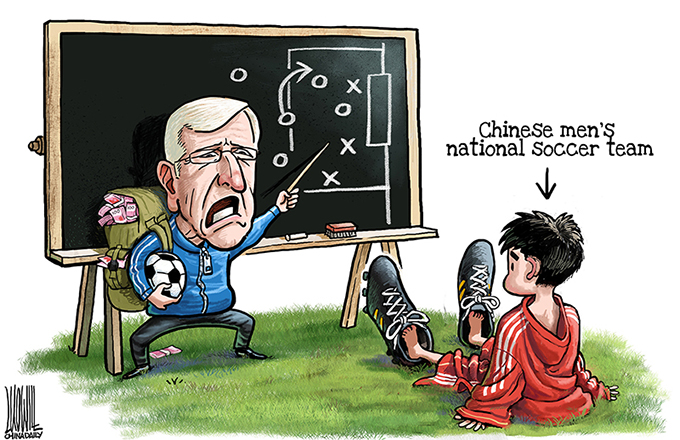Clear the smog
The unrelenting smog that is still shrouding central and northern China requires the nation to take more consistent and down-to-earth measures to combat the problem.
Policymakers, in particular, must make a thorough assessment of the problem before devising targeted measures to reduce the pollution.
The smog, which has repeatedly hit northern cities, such as Beijing, has caused growing concern. Facing growing public complaints, the government has vowed to take measures to solve the problem.
We do have some experience of air pollution control, since it has lasted for many years, although not as serious as it is today. For example, the adoption of some expedient measures, such as the temporary closure and relocation of factories, could offer some relief, as shown in the air-cleaning campaign ahead of the 2008 Beijing Olympics.
While they are necessary, such measures have proven to work only in the short term. Now that the problem has grown more serious, policymakers must look beyond expediency and seek a longer-term solution.
So far, the government is yet to reveal to the public in detail what has caused the air pollution. Without knowledge of such detailed information, policymaking based on public discussion could risk going awry.
Some experts have pointed to vehicle emissions, coal-fueled industrial expansion and, in some cases, geological position as the causes of air pollution, and they have calculated the respective contribution of those factors.
The relevant government departments, however, are yet to provide credible data as to what the real factors are and how much exactly each of them has contributed to overall air pollution.
Without such detailed information, public discussion may miss the target and the government's promise to tackle the problem may fail to materialize since it is not built on scientific assessment.
The public, for example, generally regard motor vehicles as the culprits and think the numbers should be controlled. Some argue that low emissions standards are to blame and others point their fingers at low-quality fuel that contains high amounts of sulfur.
An authoritative assessment by the government, therefore, is crucial. It will break up the responsibilities of different industries and make air pollution-control measures more targeted and feasible.
(China Daily 01/31/2013 page8)

























